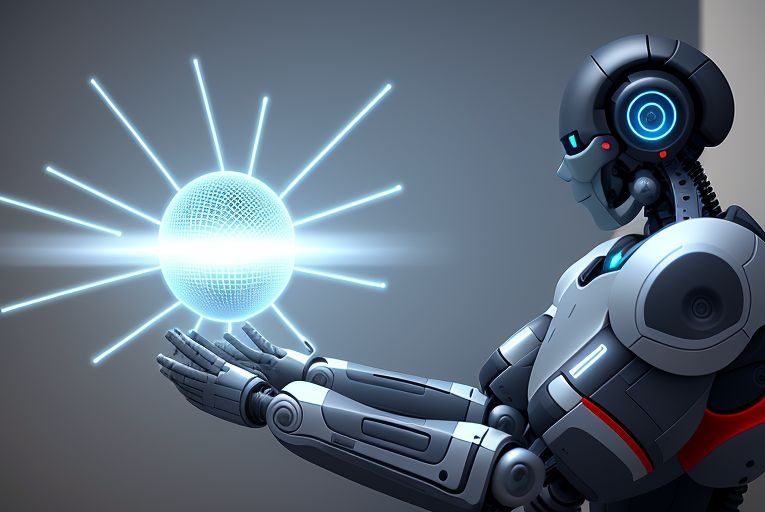Introduction
Have you ever wondered how your favorite video games come to life with stunning graphics, intelligent characters, and seamless gameplay? The answer lies in the transformative power of Artificial Intelligence (AI) in game development. From creating lifelike NPCs (non-player characters) to optimizing game mechanics, AI is revolutionizing the gaming industry. In fact, the global AI in gaming market is projected to reach $11.4 billion by 2030, showcasing its growing significance. Whether you’re a game developer, a tech enthusiast, or simply a curious gamer, understanding the role of AI in game development is essential to appreciating the magic behind your favorite games.
How AI is Shaping Modern Game Development
AI has become a cornerstone of modern game development, enabling developers to create more immersive, dynamic, and engaging experiences. Here’s how AI is transforming the industry:
1. Intelligent NPCs and Adaptive Gameplay
Gone are the days of predictable NPCs with repetitive behaviors. AI allows developers to create characters that learn, adapt, and respond to player actions in real-time. For instance, games like The Last of Us Part II use AI to make enemies more strategic, enhancing the overall challenge and immersion. This level of adaptability keeps players engaged and ensures no two gaming experiences are the same.
2. Procedural Content Generation
AI-powered procedural generation is a game-changer for creating vast, diverse game worlds. Games like Minecraft and No Man’s Sky use algorithms to generate unique landscapes, quests, and items, reducing the need for manual design. This not only saves time but also ensures endless replayability for players.
3. Enhanced Graphics and Realism
AI is pushing the boundaries of visual fidelity in games. Techniques like machine learning-based upscaling and ray tracing are being used to create hyper-realistic environments. NVIDIA’s DLSS (Deep Learning Super Sampling) is a prime example, leveraging AI to improve frame rates and image quality simultaneously.
4. Personalized Gaming Experiences
AI analyzes player behavior to tailor experiences to individual preferences. For example, Fortnite uses AI to adjust matchmaking and recommend in-game purchases based on player data. This personalization enhances player satisfaction and retention.
5. Streamlined Development Processes
AI tools are helping developers automate repetitive tasks like bug detection, playtesting, and asset creation. Unity’s ML-Agents and Unreal Engine’s AI tools are empowering developers to focus on creativity while AI handles the technical heavy lifting.
Real-World Applications of AI in Gaming
AI’s impact on gaming isn’t just theoretical—it’s already being implemented in groundbreaking ways. Here are some notable examples:
- AI-Driven Storytelling: Games like Detroit: Become Human use AI to create branching narratives that adapt to player choices, offering a unique experience for every player.
- Voice and Speech Recognition: AI-powered voice assistants like Xbox’s Cortana enable players to control games using voice commands, adding a new layer of interactivity.
- Cheat Detection: AI algorithms are being used to identify and prevent cheating in multiplayer games, ensuring fair play for all users.
- Dynamic Difficulty Adjustment: Games like Resident Evil Village use AI to adjust difficulty levels based on player performance, keeping the experience challenging yet enjoyable.
The Future of AI in Game Development
As AI technology continues to evolve, its role in game development is set to expand even further. Here are some exciting trends to watch out for:
1. AI-Generated Game Design
Imagine a world where AI can design entire games from scratch. While this may sound futuristic, tools like OpenAI’s GPT and Google’s DeepMind are already experimenting with AI-generated content, hinting at a future where developers can collaborate with AI to create innovative games.
2. Emotionally Intelligent Characters
Advancements in emotional AI could lead to NPCs that understand and respond to players’ emotions. This would create deeper emotional connections between players and characters, elevating storytelling to new heights.
3. Cross-Platform AI Integration
As gaming becomes more cross-platform, AI will play a crucial role in ensuring seamless experiences across devices. Cloud-based AI solutions could enable real-time synchronization and personalized experiences regardless of the platform.
4. Ethical AI in Gaming
With great power comes great responsibility. As AI becomes more prevalent in gaming, developers must address ethical concerns like data privacy, bias, and the potential for addiction. Transparent and responsible AI practices will be key to building trust with players.
Challenges and Limitations of AI in Game Development
While AI offers immense potential, it’s not without its challenges. Here are some hurdles developers face:
- High Development Costs: Implementing AI requires significant investment in technology and expertise, which can be a barrier for smaller studios.
- Complexity of AI Systems: Designing and training AI models is a complex process that demands specialized knowledge.
- Balancing AI and Creativity: Over-reliance on AI could stifle human creativity, making it essential to strike a balance between automation and innovation.
- Ethical Concerns: Issues like data privacy and algorithmic bias must be addressed to ensure AI is used responsibly in gaming.
Conclusion
AI is undeniably reshaping the landscape of game development, offering unprecedented opportunities for innovation and creativity. From intelligent NPCs to personalized gaming experiences, the possibilities are endless. However, as with any transformative technology, it’s crucial to navigate the challenges and ethical considerations responsibly. As we look to the future, one thing is clear: AI will continue to play a pivotal role in creating the next generation of unforgettable gaming experiences. Whether you’re a developer or a player, embracing the power of AI in gaming is the key to unlocking a world of endless possibilities.
“`












Leave a Reply